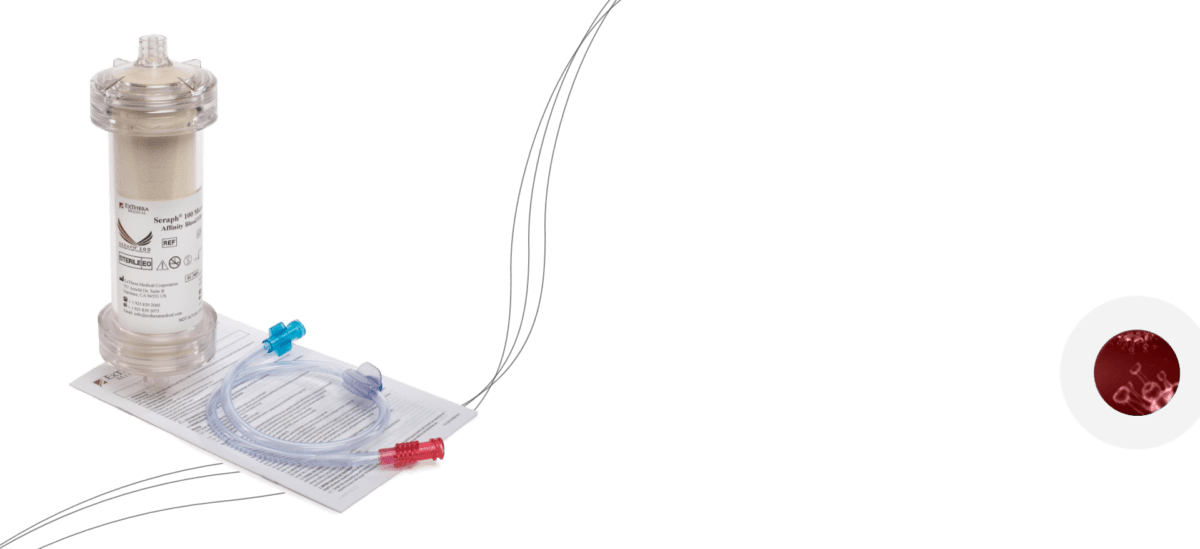PURIFY OBS, an observational study of critically-ill COVID patients treated with the Seraph® 100 Microbind® Affinity Blood Filter (Seraph 100), has recently completed enrollment.
A multicenter effort led by the US Department of Defense (DOD) published interim results in April 2021. Observations included dramatic improvement in survival and reduction in median ICU length of stay for patients treated with the Seraph 100 vs controls.
Another interim analysis from the ‘COSA Registry,’ a multicenter European study of COVID-19 patients treated with the Seraph 100 Microbind Affinity filter, also yielded positive results: Patients treated with the Seraph 100 early in their ICU stay had higher survival rates than patients treated later in their ICU stay.
“We expect the first peer-reviewed PURIFY-OBS clinical trial publication soon, now that the study has concluded. We are pleased to see these consistent and very positive results and we’re pleased to know we have helped save the lives of many critically-ill COVID-19 patients,” said ExThera Medical CEO Robert Ward. “Having treated more than 800 patients with Seraph 100 in the US alone, we have increased confidence in its safety and ability to improve outcomes for critically ill patients with COVID 19 and other serious bloodstream infections.”
The PURIFY RCT (a multicenter randomized controlled trial studying blood purification for the treatment of pathogen associated shock) has been initiated and is expected to begin enrollment in early 2022. Multicenter RCT trials are rare in the field of extracorporeal therapy and require robust signals of efficacy. It is expected that the positive clinical results observed in PURIFY OBS will continue during PURIFY RCT.
Physicians across the country are using ExThera Medical’s Seraph 100 under Emergency Use Authorization from the U.S. Food and Drug Administration to treat COVID-19 patients admitted to the ICU with confirmed or imminent respiratory failure. In 2019, the Seraph 100 was granted CE mark in the European Union for the reduction of bloodstream pathogens.
The complete PURIFY observational study is expected to be published during Q1 2022.
